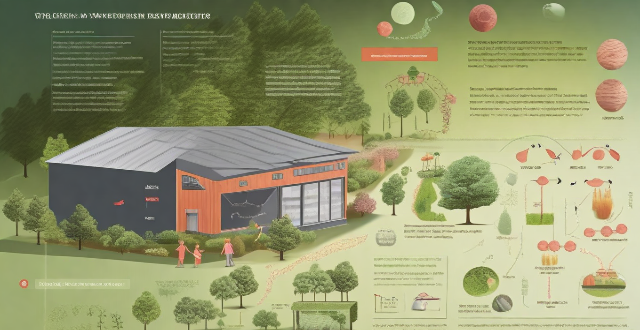Dental Effect

What is the importance of dental hygiene in overall health ?
The Importance of Dental Hygiene in Overall Health Dental hygiene is an essential aspect of maintaining good overall health. Poor dental hygiene can lead to a range of health problems, including gum disease, tooth decay, and bad breath. In this article, we will explore the importance of dental hygiene in overall health and provide tips for maintaining good oral health. How Dental Hygiene Affects Overall Health Gum Disease: Gum disease, also known as periodontal disease, is caused by the buildup of plaque on the teeth and gums. If left untreated, it can lead to inflammation, infection, and even tooth loss. Gum disease has been linked to several systemic health problems, including heart disease, diabetes, and respiratory disease. Tooth Decay: Tooth decay occurs when bacteria in the mouth produce acids that eat away at the enamel on the teeth. This can lead to cavities, pain, and even tooth loss if left untreated. Tooth decay can also affect overall health by causing digestive problems and nutritional deficiencies. Bad Breath: Bad breath, also known as halitosis, is often caused by poor dental hygiene. It can be embarrassing and may even affect social interactions. In some cases, chronic bad breath can be a sign of underlying health problems, such as gum disease or respiratory infections. Tips for Maintaining Good Oral Health Brush Your Teeth Twice a Day: Brushing your teeth twice a day with fluoride toothpaste helps remove plaque and bacteria from your teeth and gums. Floss Daily: Flossing daily helps remove plaque and bacteria from between your teeth where your toothbrush cannot reach. Visit Your Dentist Regularly: Regular dental checkups and cleanings can help identify and treat potential problems early on before they become more serious. Eat a Healthy Diet: Eating a healthy diet low in sugar and high in nutrients can help keep your teeth and gums healthy. Drink Water: Drinking water throughout the day helps rinse away food particles and bacteria in your mouth. Avoid Tobacco Products: Smoking or using other tobacco products can increase your risk of developing gum disease and other oral health problems. Limit Alcohol Consumption: Drinking too much alcohol can dry out your mouth and increase your risk of developing gum disease and other oral health problems.

What is the importance of dental hygiene in pets and how can it be maintained ?
The Importance of Dental Hygiene in Pets Dental hygiene is a crucial aspect of your pet's overall health and well-being. Poor dental hygiene can lead to various health issues, including bad breath, gum disease, tooth loss, and even more severe problems like heart, liver, or kidney disease. Therefore, maintaining good dental hygiene for your pets is essential. Maintaining dental hygiene in pets involves several steps that should be incorporated into their daily routine. These steps include regular brushing, dental chews and toys, regular checkups with a veterinarian, specialized dental foods, and homemade remedies. Incorporating these steps into your pet's daily routine can help keep their teeth healthy and prevent potential health issues down the line.

What is the greenhouse effect ?
The greenhouse effect is a natural process that warms the Earth's surface through the trapping of heat by greenhouse gases. These gases include carbon dioxide (CO2), methane (CH4), and nitrous oxide (N2O), which are released by various human activities and natural processes. The greenhouse effect is essential for life on Earth, but human-induced enhancement of this effect has led to global warming and associated environmental issues.

How does the greenhouse effect work ?
The greenhouse effect is a natural process essential for life on Earth, where certain gases trap the sun's energy, warming the planet. Human activities have increased these gases' concentration, leading to an enhanced greenhouse effect and global warming. The process involves sunlight absorption, re-emission as infrared radiation, trapping by greenhouse gases, and planetary warming. Human impact includes increased emissions from burning fossil fuels and deforestation, leading to rising temperatures, extreme weather events, sea level rise, and habitat loss. Urgent action is needed to mitigate these environmental challenges.

How does the greenhouse effect impact ocean levels ?
The greenhouse effect, essential for Earth's habitThe greenhouse effect, essential for Earth's habittensified by human activities like has been intensified by human activities like burning fossil fuels and deforestation. This amplified effect is causing global warming, which leads to rising ocean levels through melting polar ice caps and thermal expansion of seawater. Changes in precipitation patterns also indirectly affect ocean levels by redistributing water. Addressing the causes of the enhanced greenhouse effect is vital to mitigate these impacts and protect the planet's future.

What are the causes of the greenhouse effect ?
In this article, we explore the natural and human-intensified causes of the greenhouse effect and its potential consequences. The greenhouse effect is a process where certain atmospheric gases trap heat from the sun, warming the Earth's surface. Human activities such as burning fossil fuels, deforestation, and agricultural practices have increased the levels of these gases, leading to an intensified greenhouse effect and contributing to global warming. The consequences of an intensified greenhouse effect include rising temperatures, melting ice caps and glaciers, extreme weather events, ecosystem disruption, and impacts on human health. To address these challenges, collective action is needed to reduce greenhouse gas emissions and transition to sustainable practices.

How does the greenhouse effect affect weather patterns ?
The greenhouse effect is a natural process that maintains Earth's warm temperatures, making life possible. However, human activities like burning fossil fuels and deforestation have increased the concentration of greenhouse gases, leading to global warming. This enhanced greenhouse effect affects weather patterns by causing higher global temperatures, changes in precipitation patterns, extreme weather events, disruption of seasonal patterns, and changes in ocean currents. Addressing this issue requires reducing greenhouse gas emissions and adapting to the changing climate.

How does deforestation contribute to the greenhouse effect ?
Deforestation contributes to the greenhouse effect by releasing large amounts of carbon dioxide, reducing oxygen levels and disrupting ecosystems.

What are the consequences of the greenhouse effect ?
The enhanced greenhouse effect, caused by human activities, has led to rising global temperatures, changes in precipitation patterns, ocean acidification, impacts on biodiversity, health implications, and economic impacts. These consequences affect various aspects of life on Earth and require action to reduce greenhouse gas emissions and mitigate the effects of climate change.

How has the greenhouse effect affected the climate over time ?
The greenhouse effect is a natural process that warms the Earth's surface by trapping heat from the Sun. However, human activities have increased the concentration of greenhouse gases in the atmosphere, leading to an enhanced greenhouse effect and global warming. This has resulted in rising global temperatures, melting ice caps and glaciers, more frequent and severe extreme weather events, changes in ecosystems and biodiversity, and ocean acidification. To mitigate these effects, it is crucial to reduce our reliance on fossil fuels, promote renewable energy sources, protect forests and other natural habitats, and adopt sustainable practices in agriculture and industry.

Is the greenhouse effect a natural phenomenon or human-induced ?
The greenhouse effect is a natural process that helps maintain Earth's climate, but human activities have significantly increased greenhouse gas concentrations, leading to an enhanced or "human-induced" effect. This has resulted in global warming and other environmental issues, such as rising sea levels, extreme weather events, and ocean acidification.

What role do carbon emissions play in the greenhouse effect ?
The article discusses the role of carbon emissions in the greenhouse effect, which is caused by certain gases trapping heat from the sun in the Earth's atmosphere. Carbon dioxide (CO2) is one of several greenhouse gases that contribute to this process. Human activities such as burning fossil fuels for energy production and deforestation are major sources of carbon emissions, leading to an enhanced greenhouse effect and global warming. This has resulted in a range of impacts on the Earth's climate system, including rising sea levels, more frequent and intense heatwaves, changes in precipitation patterns, and shifts in ecosystems and wildlife populations. To mitigate these effects, strategies such as transitioning to renewable energy sources and improving energy efficiency are being implemented or proposed. International agreements like the Paris Agreement aim to reduce carbon emissions and limit global temperature rise.

Are there any specific products or tools recommended for optimal oral hygiene ?
Optimal oral hygiene is crucial for overall health. Recommended products and tools include electric or manual toothbrushes, fluoride or whitening toothpaste, dental floss, interdental cleaners, antibacterial or fluoride mouthwash, tongue scrapers, and water flossers. Tips for optimal oral hygiene include regular brushing and flossing, regular dental check-ups, a healthy diet, quitting smoking, and drinking water after meals.

What is the difference between global warming and the greenhouse effect ?
Global warming and the greenhouse effect are two interconnected phenomena that have a significant impact on Earth's climate. The greenhouse effect is a natural process where certain gases in the atmosphere trap heat from the sun, helping to maintain a stable climate on Earth. On the other hand, global warming is an ongoing phenomenon caused primarily by human activities such as burning fossil fuels and deforestation. While both involve greenhouse gases and their impact on Earth's climate, there are key differences between them, including their cause, duration, impact, and potential solutions.

How do spaced repetition systems align with scientific memory principles ?
Spaced repetition systems (SRS) align with scientific memory principles in several ways, including active recall, the spacing effect, the testing effect, retrieval cue variability, elaborative interference, desirable difficulty, feedback, and individualized learning. These techniques help to enhance information retention and optimize the learning process.

Can the greenhouse effect be reversed ?
The greenhouse effect is essential for life on Earth, but human activities have increased its intensity, leading to global warming. Strategies to reverse this enhanced effect include reducing emissions through renewable energy and energy efficiency, reforestation, carbon capture and storage, and negative emissions technologies like direct air capture. However, challenges such as technical feasibility, political will, economic impact, and environmental trade-offs must be considered. While a complete reversal may not be fully achievable in the short term, significant progress can be made with concerted global efforts.

How can we reduce the greenhouse effect ?
This text provides a comprehensive summary of strategies to reduce the greenhouse effect, including reducing fossil fuel use, promoting renewable energy sources, improving energy efficiency, protecting and planting trees, reducing methane and nitrous oxide emissions, developing and implementing climate policies, and promoting awareness and education. It emphasizes that collective efforts are needed to mitigate the impacts of climate change.

How do greenhouse gas emissions affect climate change ?
Greenhouse gas emissions, including carbon dioxide (Greenhouse gas emissions, including carbon dioxide (e (CH4), trap heat in the Earth's atmosphere, leading to an increase in global temperatures. This process is known as the greenhouse effect. Human activities have increased the concentration of these gases, enhancing the greenhouse effect and causing global warming. The enhanced greenhouse effect leads to various effects such as global warming, ocean acidification, impact on ecosystems, and human health and well-being. To mitigate these effects, it is essential to reduce our carbon footprint by adopting sustainable practices such as using renewable energy sources, improving energy efficiency, protecting natural habitats, promoting sustainable agriculture practices, and encouraging eco-friendly habits.

What is the relationship between the greenhouse effect and ice caps melting ?
The greenhouse effect, amplified by human activities, leads to global warming which causes ice caps to melt, leading to sea level rise, climate change, and ecosystem disruption.

What are some examples of gases that contribute to the greenhouse effect ?
The greenhouse effect is a natural process that warms the Earth's surface. Human activities have increased the concentration of certain gases in the atmosphere, leading to an enhanced greenhouse effect and global warming. Major greenhouse gases include carbon dioxide (CO2), methane (CH4), nitrous oxide (N2O), fluorinated gases, ozone, and water vapor. These gases trap heat in the Earth's atmosphere and contribute to global warming. Reducing emissions of these gases is essential to mitigate climate change and its impacts on ecosystems, societies, and economies worldwide.